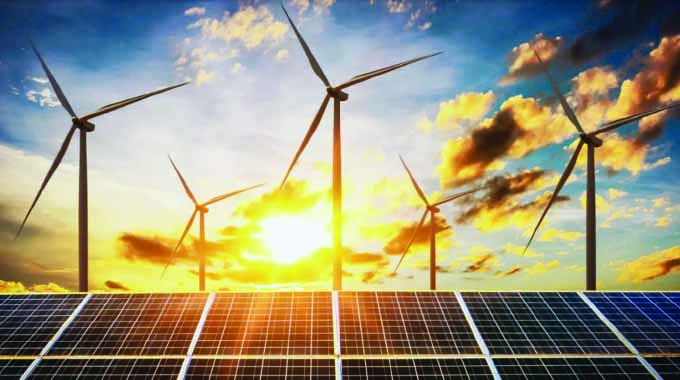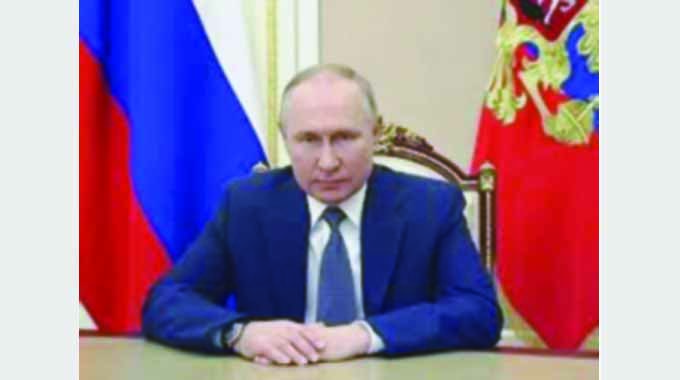Powering Africa with solar way to go

Ruth Butaumocho
African Agenda
“I would put my money on the sun and solar energy. What a source of power! I hope we do not have to wait until oil and coal run out before we tackle that.”
The above quote from Thomas Edison, an American inventor in electric power was made in 1931, when it dawned to him that fossil fuels would not last forever.
Not long before he died, the highly revered inventor told his friends Henry Ford and Harvey Firestone, that businessmen and futurists needed to consider investing in solar, to avert energy shortage in the event that coal and oil run out.
Like other scientists of his day, Edison, who is credited for inventing the light bulb, was beginning to understand that fossil fuels would not last forever.
When he shared his thoughts, none of his friends thought the world would experience serious power shortages, and neither did they ever envisaged that his aspirations would take longer than necessary to be appreciated.
Nearly 100 years after Edison’s bold assertions, which took much longer than what he would have hoped for, his aspirations are now being embraced.
The age of solar and other forms of renewable energy is finally here.
Power black outs, rationing, rolling shortages, and load shedding continue to hamper many countries’ development, including African economic giants like South Africa and Nigeria.
Apart from perennial power shortages, and lack of foreign currency for power imports and bolstering energy, the situation has also been worsened by adverse effects of climate change.
Neighbouring South Africa is battling serious power shortages, with power distribution entity Eskom saying the problem is far from over.
Last year, Eskom admitted that such interruptions were likely to persist for the next five years due to increased down-time of the rapidly ageing fleet of coal plants.
Delays in setting up new plans were also causing the power shortages.
Back home, Zimbabwe finds itself in a similar situation that has resulted in the electricity utility company, Zimbabwe Electricity Transmission and Distribution Company (ZETDC) introducing several hours of load shedding a day, because the grid cannot generate enough energy to meet national demand.
However, all hope is not lost following concerted efforts that both the Government and the private sector have been making by investing in solar and other forms of renewable energy to insulate the nation against power disruptions and a total black out in the near future.
The commitment to power all forms of energy are not only backed by fiscal support, but also by robust policies to show way in implementation and ensuring that all projects on renewable energy – including solar – are rightly supported.
In launching the two policies in 2020, National Bio-Fuel Policy and the Renewable Energy Policy, President Mnangagwa said the two policies would help the Government to ensure energy security in the country.
National Renewable Energy policy advocates for an increase in the share of renewable energy in the overall energy mix, while the Biofuel Policy of Zimbabwe, is a policy framework for the production, investment and use of liquid bio-fuels.
“Those two policies are being unveiled at a time when our great nation is realising increased investment in the renewable energy sector,” President Mnangagwa said while speaking on renewable energy.
“This event is testimony to my Government’s commitment to give impetus to the implementation of renewable energy projects.
“This will go a long way towards the realisation of Sustainable Development Goal (SDG) number seven, which seeks to ensure access to affordable, reliable, sustainable and modern energy for all.”
Two years after the launch of the two polices, there have been a flurry of activities in the energy sector where both the Government and the private sector have been pulling in one direction, albeit slowly, to harness all forms of renewable energy.
To date, The Zimbabwe Energy Regulatory Authority (Zera) says it has processed 39 solar power projects that have capacity to generate up 1 151,87MW, as the country moves towards renewable energy to contain shortages.
These projects are not only on paper, but some of them are already operational, illuminating the nights across cities and rural areas.
A number of companies such as Matshela Energy, Harava Solar and Centragrid (Private) Limited are working on huge solar projects to alleviate power shortages which have hit domestic and commercial users hard.
Centragrid, which is based in Nyabira, about 40km from central Harare, has started feeding 2,5MW into the national grid.
The 2,5MW can light up to 1 200 households.
The magic of solar is not being experienced in Zimbabwe alone, but also across several African countries, which are beginning to reap the benefits of off grid sources of energy such as solar.
In addition to other renewable forms of energy, solar energy is proving to be the real solution to the energy crisis in Africa.
The growth of the off-grid energy sector is proving to be one of Africa’s social and economic success stories, transforming lives overnight by bringing power to low-income households and small businesses, often in remote areas with little prospect of a link to the national grid.
It has opened up a world of impossibilities by ensuring that every household can still live their dream, by choosing a package that meets their aspirations no matter how far they may be located from the main electricity grid.
With the cheapest package going for US$50 for household use, it is now possible to come across an oasis of lights shimmering in the pitch-black night in a rural setting up, hundreds of kilometres away from the capital city.
From mere powering rural households, big corporate organisations and quite a number of production factories are now running on solar, partly as back up and as a long term solution in dealing with electricity shortages.
A latest report show that at least 1 047 out of the target 1 860 public facilities across the country, mainly in rural areas, now have access to solar energy under a Government programme designed to provide electricity and backup power at ball health centres in the country.
With already more than 56 percent implementation, the Government is forging ahead with installation of solar systems and public clinics and hospitals across Zimbabwe.
Despite all the competitive advantages, solar systems are not cheap, a development which calls for long term investments on solar farms, solar innovations and sustainable tooling in terms of resources and expertise for successful implementation.
Investments in solar farms, infrastructure development and expertise is a crucial step that governments need to prioritise to consolidate power on national grids.
The seriousness the Government is putting in the renewable energy should be supported with able players and stakeholders that are committed to light up the country.
Had yesteryear investors put resources and thought to Edison’s vision of turning to renewable energy nearly 100 years ago, the majority of global citizens would be now be revelling on infinite energy sources.
But of course, the chap must be smiling in his grave on the progressive initiatives the globe has made towards investing in all forms of renewable energy.
◆ Feedback: [email protected]










Comments